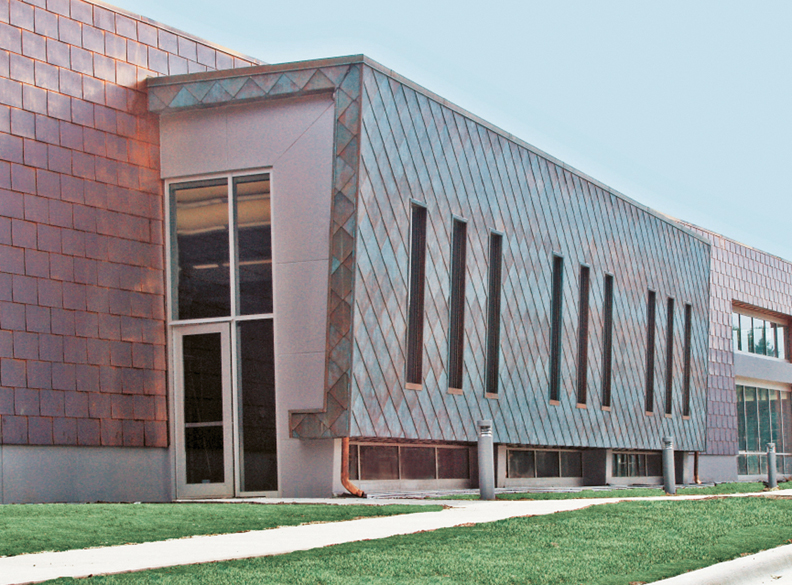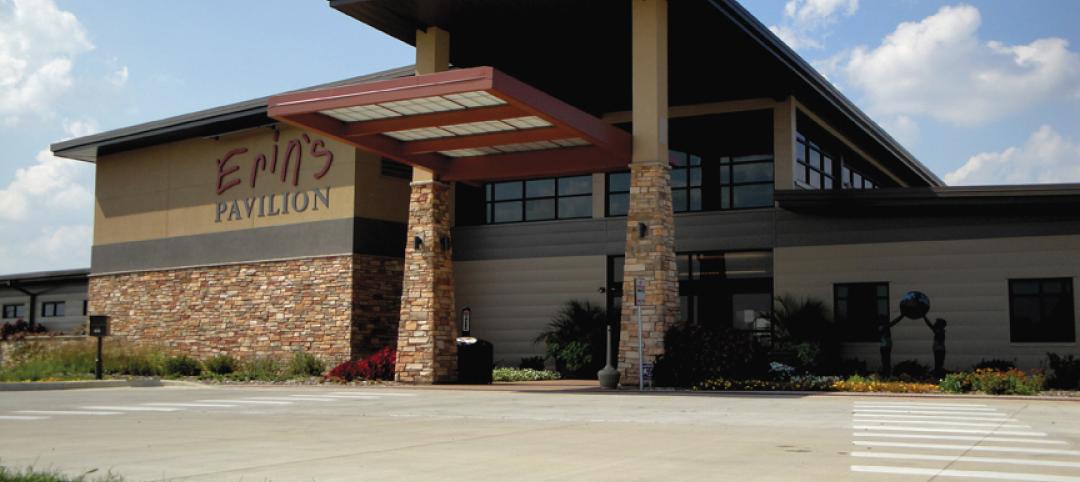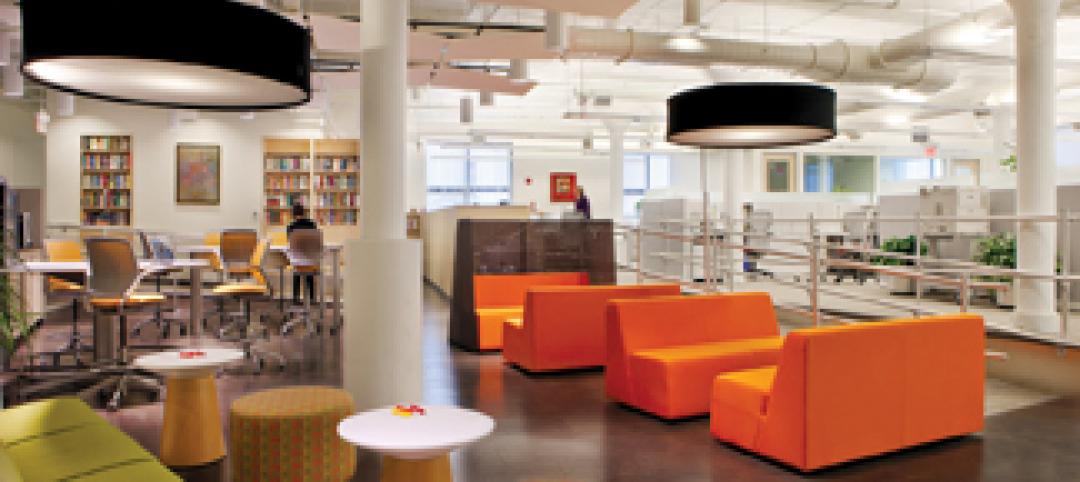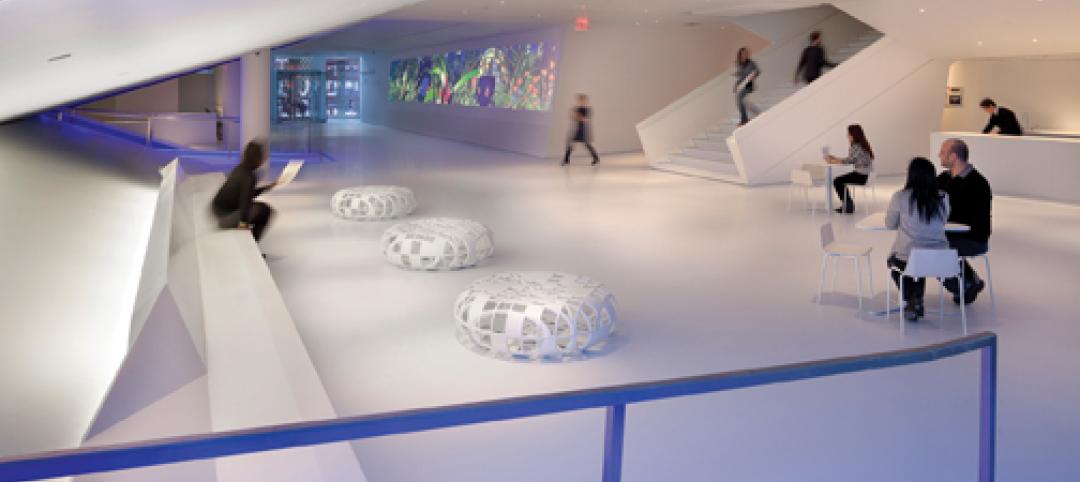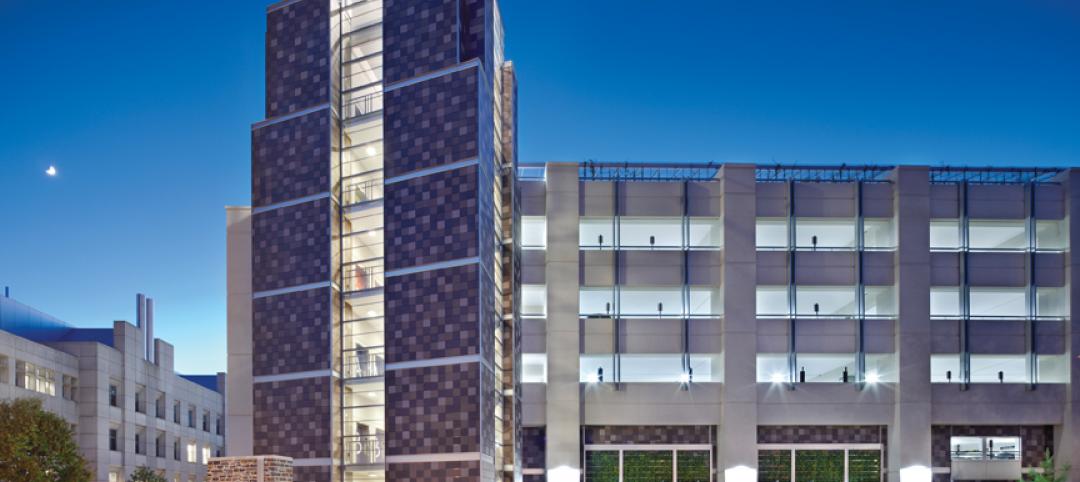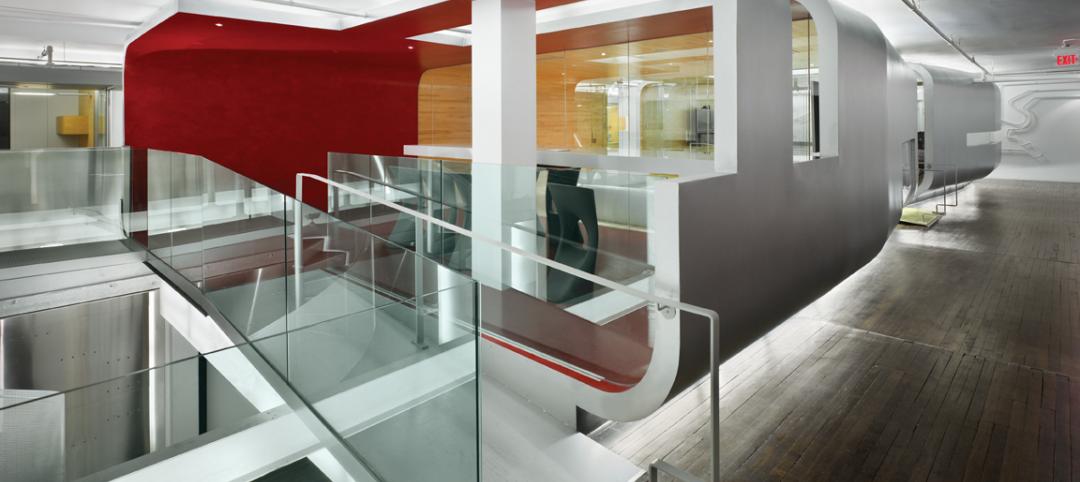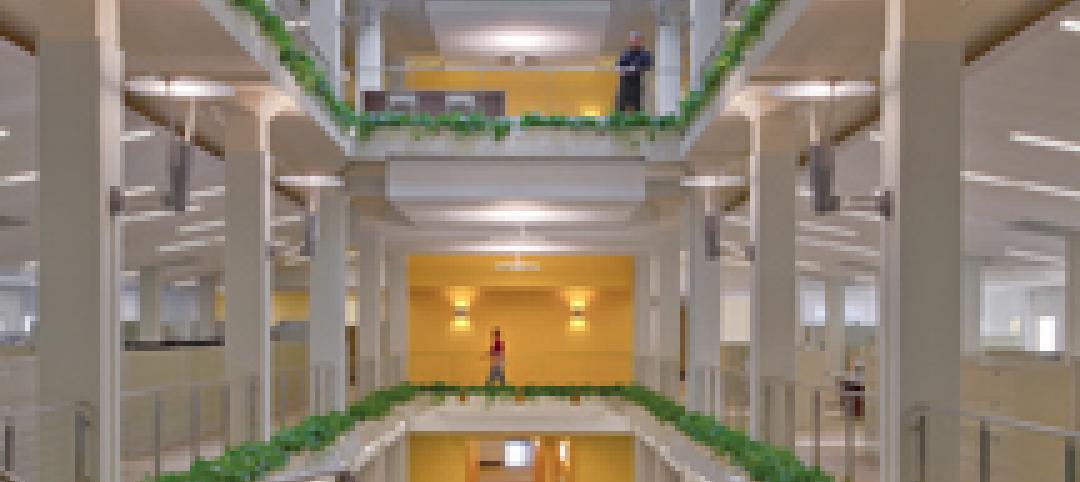As OPN Architects, Cedar Rapids, Iowa, set out to design a new library for the residents of Moline, Ill., they acknowledged the library as an institution has evolved from a traditional space reserved for individual reading and research into an energizing, interactive, technology-based community resource.
OPN envisioned a design that reflected the library’s modern role in society, while remaining true to its traditional character. The firm concluded that a building of contemporary design featuring time-honored building materials would best achieve their design aesthetic. Hallmarks of conservative design, brick, stone, glass, and copper were selected.
OPN saw an opportunity to break copper away from its conventional use and employ it in an innovative, fresh manner--as a building material. They envisioned using decorative copper panels to create the look of a heavy plate copper shingle. The design objective was impressive, but OPN Architects knew using copper in this unique fashion presented two significant challenges: cost and durability. They turned to ALPOLIC Materials for a solution.
OPN Architects recognized that ALPOLIC’s copper composite material offered five significant benefits:
- The use of genuine copper
- Significant cost savings over the use of copper sheets
- The appearance of heavy-gauge copper in a light-weight material
- Durability
- Reduced production and fabrication time
Another challenge of working with copper is the “oil can effect”--the slight undulations that can occur if the copper is not of sufficient gauge. Due to the rigidity of the ALPOLIC panel, the “oil can effect” problem was eliminated.
Project Summary: Moline Public Library
BUILDING TEAM
Owner/developer: City of Moline, Ill.
Architect: OPN Architects
General Contractor: Russell Construction
Fabricator: Metal Design Systems Inc.
Panel Manufacturer: ALPOLIC
Products: 2mm PE Copper Metal; 4mm Mica Platinum
Amount of Material: 18,600-sf
OPN Architects also enlisted the help of Metal Design Systems Inc. (MDS), a fabricator based in Cedar Rapids, Iowa. MDS developed a one-of-a-kind post patina process that provided ALPOLIC’s copper composite with a unique, rich finish. OPN Architects used ALPOLIC’s PE Copper Metal in its un-altered state in tandem with the in-house patina copper. The materials will evolve independently as well as in harmony, creating a distinctive organic finish that will change as the material matures. The copper’s “living” effect mimics the energy of the library itself.
ALPOLIC panels in the Mica Platinum finish were also used on the Moline Public Library project--both on the exterior and interior, providing additional aesthetic appeal and durability.
OPN Architects and MDS agree; ALPOLIC’s copper composite made the Moline Public Library’s innovative design objective possible. BD+C
Related Stories
| Apr 14, 2011
USGBC debuts LEED for Healthcare
The U.S. Green Building Council (USGBC) introduces its latest green building rating system, LEED for Healthcare. The rating system guides the design and construction of both new buildings and major renovations of existing buildings, and can be applied to inpatient, outpatient and licensed long-term care facilities, medical offices, assisted living facilities and medical education and research centers.
| Apr 13, 2011
National Roofing Contractors Association revises R-value of polyisocyanurate (ISO) insulation
NRCA has updated their R-value recommendation for polyisocyanurate roof insulation with the publication of the 2011 The NRCA Roofing Manual: Membrane Roof Systems.
| Apr 13, 2011
Professor Edward Glaeser, PhD, on how cities are mankind’s greatest invention
Edward Glaeser, PhD, the Fred and Eleanor Glimp Professor of Economics at Harvard University and director of the Taubman Center for State and Local Government and the Rappaport Institute for Greater Boston, as well as the author of Triumph of the City: How Our Greatest Invention Makes Us Richer, Smarter, Healthier, and Happier, on how cities are mankind’s greatest invention.
| Apr 13, 2011
Southern Illinois park pavilion earns LEED Platinum
Erin’s Pavilion, a welcome and visitors center at the 80-acre Edwin Watts Southwind Park in Springfield, Ill., earned LEED Platinum. The new 16,000-sf facility, a joint project between local firm Walton and Associates Architects and the sustainability consulting firm Vertegy, based in St. Louis, serves as a community center and special needs education center, and is named for Erin Elzea, who struggled with disabilities during her life.
| Apr 13, 2011
Virginia hospital’s prescription for green construction: LEED Gold
Rockingham Memorial Hospital in Harrisonburg, Va., is the commonwealth’s first inpatient healthcare facility to earn LEED Gold. The 630,000-sf facility was designed by Earl Swensson Associates, with commissioning consultant SSRCx, both of Nashville.
| Apr 13, 2011
Office interaction was the critical element to Boston buildout
Margulies Perruzzi Architects, Boston, designed the new 11,460-sf offices for consultant Interaction Associates and its nonprofit sister organization, The Interaction Institute for Social Change, inside an old warehouse near Boston’s Seaport Center.
| Apr 13, 2011
Expanded Museum of the Moving Image provides a treat for the eyes
The expansion and renovation of the Museum of the Moving Image in the Astoria section of Queens, N.Y., involved a complete redesign of its first floor and the construction of a three-story 47,000-sf addition.
| Apr 13, 2011
Duke University parking garage driven to LEED certification
People parking their cars inside the new Research Drive garage at Duke University are making history—they’re utilizing the country’s first freestanding LEED-certified parking structure.
| Apr 13, 2011
Red Bull Canada HQ a mix of fluid spaces and high-energy design
The Toronto architecture firm Johnson Chou likes to put a twist on its pared-down interiors, and its work on the headquarters for Red Bull Canada is no exception. The energy drink maker occupies 12,300 sf on the top two floors of a three-story industrial building in Toronto, and the design strategy for its space called for leaving the base building virtually untouched while attention was turned to the interior architecture.
| Apr 13, 2011
Former department store gets new lease on life as MaineHealth HQ
The long-vacant Sears Roebuck building in Portland, Maine, was redeveloped into the corporate headquarters for MaineHealth. Consigli Construction and local firm Harriman Architects + Engineers handled the 14-month fast-track project, transforming the 89,000-sf, four-story facility for just $100/sf.


